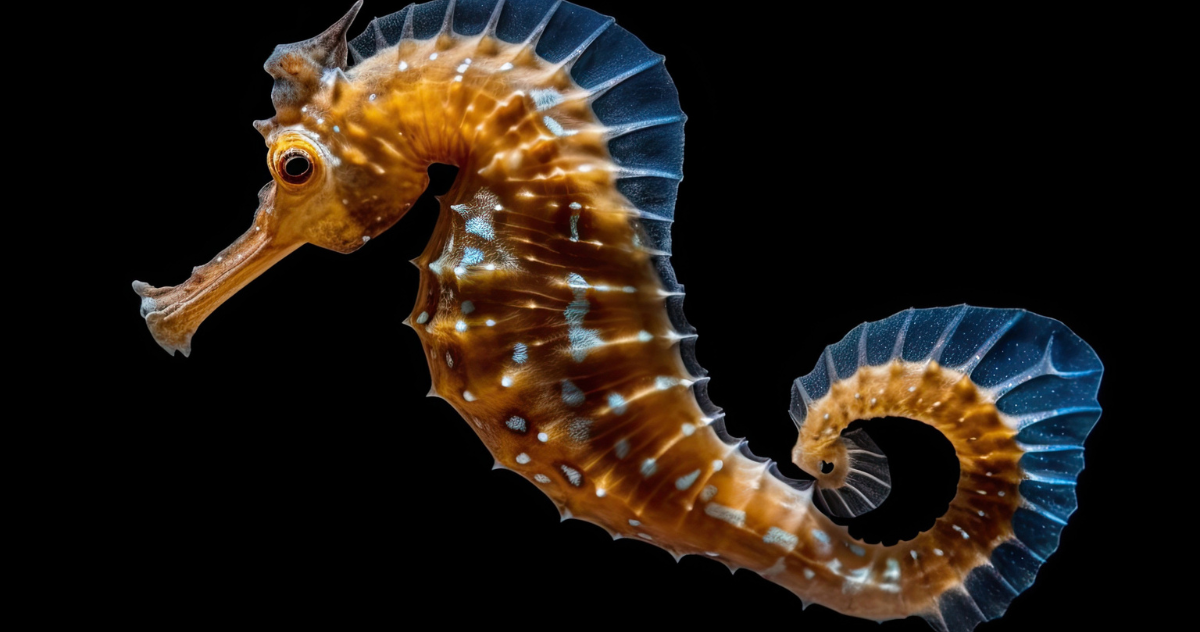New York (Transatlantic Today) — Fangchenggang, located in the picturesque Guangxi Zhuang Autonomous Region of south China, recently found itself at the center of an eye-opening wildlife protection case. To curb the illegal trade of endangered wildlife products, local police unveiled a surprising discovery during a routine inspection of a bus traveling from Dongxing to Guangzhou, the capital of Guangdong Province. This discovery raised the critical question: Are dried seahorses illegal in China? In this article, we delve into the intricacies of this case, shedding light on the legal status of dried seahorses in the country.
The Bust: Unearthing the Contraband
On October 30, police officers in Fangchenggang made a significant breakthrough when they stumbled upon a cache of dried seahorses weighing 17 kilograms. These 13,991 dried seahorses, concealed during the inspection, have become central to a potential wildlife trafficking case. The suspicious cargo was en route to Guangzhou, with the intention of being sold there.
The Suspect and the Seized Seahorses
The suspect behind this smuggling operation had invested over 20,000 yuan, equating to approximately 3,026 U.S. dollars, in acquiring dried seahorse products in Dongxing. These purchases were made with the clear intent of transporting and selling them in Guangzhou. However, the legality of such actions remained in question.
Legal Procedures and Wildlife Products
The suspect’s detention revolved around the inability to provide legal procedures for possessing and selling dried seahorses. This highlights the gravity of the situation and the strict legal measures taken to combat the illegal trade of endangered wildlife products in China.
The Protected Seahorses
The Convention on International Trade in Endangered Species (CITES) extends its protection to seahorses, categorizing them as endangered species. This designation comes with specific regulations that control the import and export of seahorses, dictating that the requisite legal paperwork must accompany all transactions.
China’s Strict Stance on Illegal Wildlife Trade
China’s commitment to preserving endangered species is evident in the rigorous enforcement of laws surrounding the trade of products derived from endangered wild animals and plants. To address the issue, several regulations and laws are in place to penalize those involved in illegal activities, whether it be import, export, or smuggling.
Are Dried Seahorses Illegal in China? A Detailed Exploration
In our quest to understand the legality of dried seahorses in China, it becomes essential to explore the intricate web of international and domestic regulations governing endangered species trade.
1. CITES and Seahorses
The Convention on International Trade in Endangered Species (CITES), an international treaty, stands as a beacon of hope for preserving endangered species worldwide. It recognizes the ecological importance of these species and aims to protect them from over-exploitation. Seahorses, with their delicate beauty and vulnerability, have secured their place on the list of species protected by CITES.
Under CITES, seahorses are subject to stringent regulations. These regulations state that seahorses can only be imported or exported with appropriate legal paperwork. The intention here is not to completely ban the trade but to ensure that it is conducted sustainably and ethically.
2. China’s Domestic Laws
As a signatory to CITES, China is committed to upholding this international agreement’s principles. To this end, the country has established various domestic laws and regulations to enforce the protection of endangered species and combat illegal trade effectively.
In the case of dried seahorses, they fall under the purview of these domestic laws, as they are considered products derived from endangered wildlife. As a result, any attempt to import, export, or smuggle dried seahorses without proper legal documentation is met with strict legal consequences.
3. Legal Consequences for Illegal Wildlife Trade in China
To further address the issue, China has a series of regulations in place to penalize those who partake in illegal wildlife trade activities. These regulations can lead to severe punishments for individuals involved in the unlawful acquisition, transportation, or sale of endangered wildlife products.
Conclusion: Are Dried Seahorses Illegal?
The recent case in Fangchenggang, where dried seahorses were seized from a bus en route to Guangzhou, has brought to the forefront the ongoing efforts to combat the illegal trade of endangered wildlife products in China. The central question, “Are dried seahorses illegal in China?” is unequivocally answered through the lens of international agreements like CITES and domestic laws aimed at preserving endangered species.
The strict enforcement of these regulations is a testament to China’s commitment to protecting its native and global biodiversity. The significance of safeguarding seahorses and other endangered species should not be underestimated. By addressing the issue head-on, China aims to be a global leader in the fight against illegal wildlife trade, setting an example for preserving our planet’s most vulnerable creatures.


























